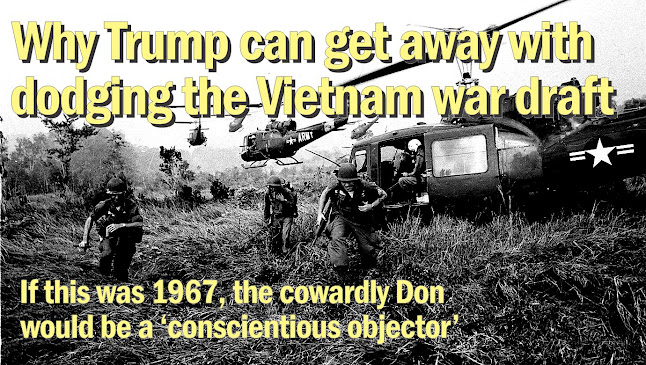ress Secretary Harry Roque never ceases to amaze—and annoy. He makes you want to puke.
After Pharmally employee Krizle Mago testified
at a Senate Blue Ribbon committee hearing that her company swindled the
government in a multi-billion PPE supply contract, Roque simply shrugged it off when asked how Malacañan Palace
feels about it.
He said the whistleblowing exposé was not
substantive evidence because it came “only” in the form of oral testimony.
Then to buttress his own credibility for giving
that unfocused nugget of forensic insight, he said, and I loosely quote him,
“nung ako’y nagtre-training pa ng mga abugado, sinasabi ko hangga’t maari dapat
physical evidence ang ating dapat ibigay
sa hukuman kasi kung testimonya lang talk is cheap. Pwedeng mabili, pwedeng
matakot. Hanapan po natin ng subtantiated
evidence. Hindi lang po yung testimonya
ng isang tao “ (when I was still training lawyers, I would say as much as
possible let's submit physical evidence to the court rather than testimonies,
because talk is cheap. It can be bought, a witness can be threatened).
I couldn’t help but count how many points that one
statement is wrong about.
ONE. All the physical evidence, as well as documentary evidence, is in. The
supply contracts, delivery invoices, receipts for payments disbursed by the
government, COA reports red-flagging the deal, as well as sworn statements of
the witnesses obtained by the committee, even ahead of the actual taking to the
witness stand of this witness. The physical evidence is in, too, showing
tampered safety and expiry certifications, etc. As far as the material quality
of these PPE’s is concerned, for purposes of inspecting them for commensurate “pricey-ness,”
you really only need a representative sample of N-95 masks, plastic faceshields,
etc to exhibit to the Senate committee.
The whole country is wearing the rest of the evidence.
TWO. The testimony of Krizle Mago is the
substantiating evidence. The gaping chasm of price difference between the
government-procured PPE’s and their corresponding prices in the freemarket is
just an abstract mathematical difference until somebody provides context. More
importantly, even if somebody in the company had designed the scheme to defraud
the government all that is speculative until somebody says, “Yes, sir, I
received an order from my leader and I followed it.” Mago testified that she received an order
from company higher-ups to mislabel, misdeclare and misdeliver billions in
pesos worth of PPE’s to the government. Not only that, she also relayed the
order down the line and testimonies by
other collaborating witnesses established that the order trickled the whole
way down to the warehouseman who all followed it. So there is primary
evidence, substantiating testimony and collaborating testimony. You can’t ask
for anything more.
THREE. Talk is not cheap. Mago did not testify under a mango tree. She did so
in front of the Blue Ribbon committee of the Philippine Senate, before whom she
raised her right hand and swore under oath to tell the truth, the whole truth
and nothing but the truth, under pain of perjury if she lies. Roque’s saying that a testimony can be bought
cheap is really a bit of a Freudian slip. Only someone who has done it before
can regard testimony—a sacrosanct legal obligation—as commodity to buy, with a
ballpark pecuniary estimation of its cost, viz., cheap. A circumspect rephrasing: “pwedeng mabili,
pero ewan natin kung magkano” (it can be bought, who knows how much). As to
the “pwedeng matakot” part there’s nothing Freudian about it, to go by
how witnesses against Sen. Leila de Lima were procured.
FOUR. Krizle Mago was a witness of the government—particularly, of
the Senate. They subpoenaed her. The Senate hearing was not an adversarial judicial
proceeding, it was not a hearing in a criminal or civil suit. There is no
accused, no complainant, no petitioner or defendant. It was a fact-finding hearing—not
even an investigation—that will not culminate in a Judgment. Even if it
exposes actionable violations of law, it is Roque’s branch, the Executive Branch,
through the prosecutorial arm of the Department of Justice, that must file the
necessary case—which it won’t—against erring private individuals whose testimonies
connect the wrongdoing to high government officials.
FIVE. Roque works for the government, who is the defrauded party in these
anomalous transactions. Imagine yourself getting scammed and the scammer comes
forward to publicly confess he scammed you. You say, “Whoa! Stop right there!
You cannot say that you scammed me just like that, you have to present
substantive evidence. Why should I believe you?” Can you hear how funny that
sounds? Harry cannot.
SIX. Pardon me if the rest sounds boring because its all lawyer
gobbbledygook. But I would advise some of the pañeros he said he trained
to forget a little of what they learned from him in this regard. You don’t
compare physical evidence with testimonial evidence to rank them. Different
species. Apples and oranges. Physical evidence is critical in a murder case.
You’d love to get your hands on a smoking gun—which won’t help you very much in
a libel case. For that you need documentary evidence, like a newspaper clipping
of a libelous article—which won’t help you in an oral defamation case, that can
only be proven by the testimony of a witness who heard the uncouth remarks. See
what I mean, Harry? Different tool for different jobs, and there are nuances
even between similar tools. So a flathead screwdriver is not “better” than a
Philips crosshead screwdriver, even if they’re both screwdrivers. One can’t do
the job of the other.
SEVEN. Krizle Mago’s testimony is not worthless just because its testimonial.
Now its time to compare evidences belonging to the same species to rank
them. The testimony “Yes, sir, the PPEs are overpriced” is crap. If Mago’s testimony had been that broad and
generic, Harry would be correct—it has to be substantiated. But if the
testimony is “Yes, sir, I was given an order to overprice the item, and I followed it. I also ordered others to do the same” That testimony is
24-carat gold, having a probative value of the highest order under the Rules. It’s
called an admission against one’s own interest. Under oath, the woman is admitting she
committed a crime (no, it’s not a self-incriminating testimony, she wasn’t on
trial, she is not an accused) fully aware of the possible repercussion. But
hearkening to that small still voice of honesty embedded within her conscience,
she gave that testimony. Shame on anyone who doubts it, especially if that
person represents the supposedly victimized party. In a bipolar conflict of interest,
you must advocate the interest of the party you represent. This is an onerous
contract resulting in a gross disadvantage against the government who
represents the people. Remember the people, Harry? Your words,
your actions, your whole predisposition should reflect your advocacy for the party you represent.
Since you represent the—uh—wait, let me go back to Freud...(c)
2021 Joel R. Dizon
NOTE FROM JOEL: Hi, folks! Recently, I started a YouTube channel which is called "Parables and Reason" It is kind of similar to this blog but using the video format. You can check out my channel by clicking the link below:
Joel R. Dizon - PARABLES AND REASON






